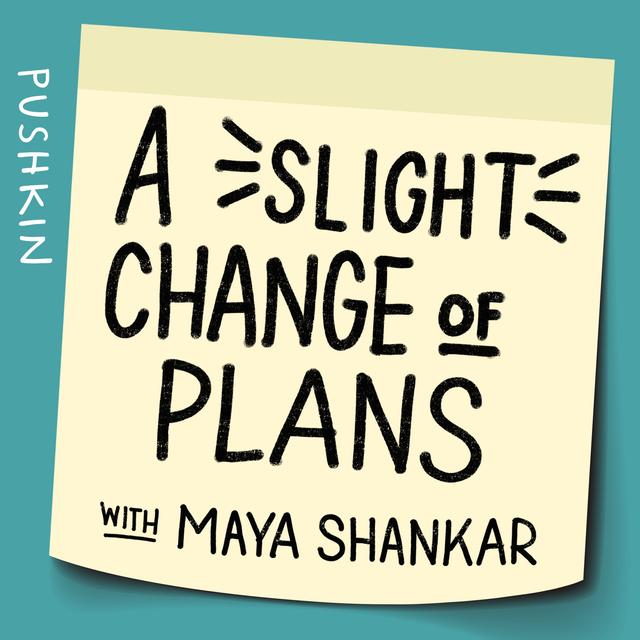Pushkin. Hey there, Maya here. I've been working on a special collaboration with the podcast Radioheadspace from Headspace Studios. Every day this week, I'll be guest hosting their episodes. We discuss everything from how to pivot gracefully when life gets in the way of our best laid plans, to how to stay motivated when we're trying to reach our long
term goals. It was a chance for me to reflect on what I've learned about change over the course of my life career, and while making a slight change of plans. I'm going to share the first episode in the sequence with you now. I hope you enjoy it and you can hear the rest of the week's episodes on Radioheadspace wherever you listen to podcasts. Sat Hi, I'm doctor Maya Schunker, your guest host for the week. Welcome to Radioheadspace and to Tuesday. Today we're going to talk about the impact
big changes can have on our self identity. We'll explore why we're so attached to the labels we give ourselves and that other people give us, and how seeing our identities is more malleable can help us weather the storms
that life inevitably sends our way. My grandmother had played the violin in an Indian classical tradition growing up, and when my mom immigrated to this country in the nineteen seventies, she brought my grandmother's violin with her, and I remember one day she went up to the attic and brought the violin down, and she had only meant to show it to me, but I immediately took to the instrument and asked my mom for a pint sized violin of my own. I immediately was on the fast track to
trying to become a concert violinist. When I was nine years old, I started studying at the Juilliard School of Music in New York, and when I was a teenager, the violinist It's a Perlman asked me to be his private violin student. And then one day my dreams ended in a moment, I had a sudden hand injury, after which doctors told me I could never play the violin again.
And what I realized in that moment was that my identity was tethered to the violin, to being a violinist, and so when I lost the ability to play, I really do feel like I lost a considerable part of myself, and I wasn't really sure how to think about who I was or who I could be without it. There's a concept in cognitive science called identity foreclosure, and it refers to the fact that we can lock ourselves into a very specific identity in adolescence, but that actually can
persist well into adulthood. And looking back, I absolutely fell prey to identity foreclosure. I was first and foremost a violinist, and I think one thing that helped guide me through that transition was to start to see my identity as
more malleable, as something that could change over time. And I think my best friend along the way was having an open mind, being exploratory, talking to other people about what their passions were, just trying to see a world outside of the violin which had been my world for
so long. One lesson that I learned from my own experience losing something that I loved that I want to share with listeners is to try and think about the features of the pursuit that you like and to attach your identity to those features rather than the thing itself. So when I reflect on what it is that I loved about playing the violin. I realized that, ultimately was
human connection that really got me to light up. I could go on a stage in front of thousands of strangers and I had the ability to make them feel something they had maybe never felt before, and that was such a powerful feeling. It's when I realized, Okay, it's human connection that really makes me tick. I was able to find that trait in other pursuits, even when I
lost the ability to play the violin. I found it as a cognitive scientist and studying the science of what it means to be human and to connect with other people. And I found it with my podcast, A Slight Change of Plans, which is all about forging deep human connections
with guests that I invite onto my show. So I would urge listeners who are going through an unexpected change or a turbulent time to ask themselves, what is my through line If I strip all of the activities that I engage with down to their core, what still exists and try to find that trait in as much of what you do as you can. That's all for today.
Next time, I'll talk more about what happened after my career as a violinist ended and how we can forge new paths when life just doesn't turn out the way we hope it would. Thanks for listening, I'll see you back here soon.
